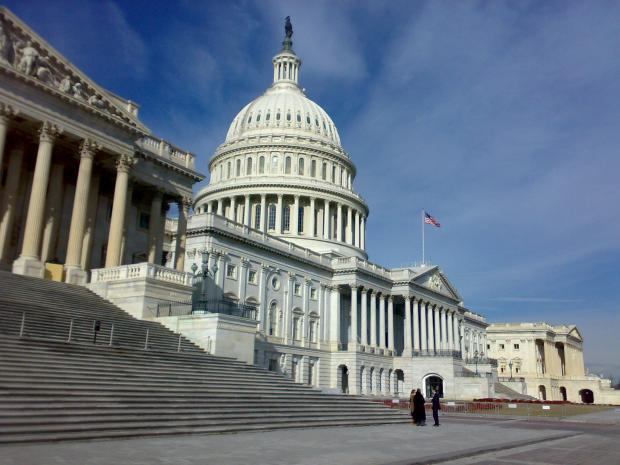Federal legislation has been introduced that could help President Barack Obama fast-track international trade deals, but while many in the agricultural industry say this will open the doors for Wisconsin farmers and processors, others are concerned about the larger implications.
A bill introduced by U.S. Rep. Paul Ryan, R-Wis., supports Trade Promotion Authority, which would give Obama the ability to fast-track an agreement. Congress would then pass the deal with an up or down vote without any amendments. Congress and the president have used the fast-track authority since 1974.
The priority is passing the Trans-Pacific Partnership, a trade deal with 11 other countries, including New Zealand, Mexico and Japan. The bill could also open the doors to the Trans-Atlantic Trade and Investment Partnership with the European Union.
Stay informed on the latest news
Sign up for WPR’s email newsletter.
U.S. Secretary of Agriculture Tom Vilsack said the Trade Promotion Authority assures other countries that a trade agreement will not be changed last minute.
“If you’re negotiating with someone across the table and you want that other country to put their best and final offer on the table, you have to give them some kind of assurance that whatever is ultimately agreed upon at that table will be the deal that is voted upon by Congress,” Vilsack said.
Some lawmakers and groups, like the Wisconsin Farmers Union, have criticized the process.
Zach Herrnstadt, the Wisconsin Farmers Union’s government relations associate, said there’s a lack of transparency and the secret negotiations make it unclear if the interests of farmers, processors and consumers have been kept in mind.
Other groups, like the American Farm Bureau Federation, are pressuring Congress to pass the Trade Promotion Authority. According to the U.S. Department of Agriculture, the U.S. exported $152 billion in agricultural products in 2014, which is a record. Officials with the Farm Bureau said fast-tracking trade deals will help foster more growth.
Vilsack said ultimately the trade deals could eliminate or lower tariffs in different countries. He said this could open and balance markets for Wisconsin and U.S. dairy, which face major competition from New Zealand.
“So, obviously, today that playing field is not as level as it could be,” Vilsack said. “By lowering tariffs in those other countries, we’ll have better access to those markets.”
The secretary said there are rapidly expanding trade opportunities with Asian countries that are involved in the negotiations.
However, the free-trade deals are controversial. Labor groups, like the AFL-CIO, argue the agreements could result in lost jobs and lower wages in the U.S.
Herrnstadt said the deal could impact Wisconsin’s dairy industry. He said any trade deal needs to include measures that protect U.S. producers.
“It’s really essential that any trade agreement signed by the U.S. would include provisions ensuring that other countries have environmental, food safety, health and labor standards that are equal to or greater than those in the U.S.,” he said.
According to the USDA, Wisconsin dairy exports is 2013 were valued at $924 million. Supporters say those figures could grow under the new trade deals.
The trade agreements don’t only deal with the agricultural industry, but also manufacturing, intellectual property, information technology and entertainment.
Wisconsin Public Radio, © Copyright 2024, Board of Regents of the University of Wisconsin System and Wisconsin Educational Communications Board.





